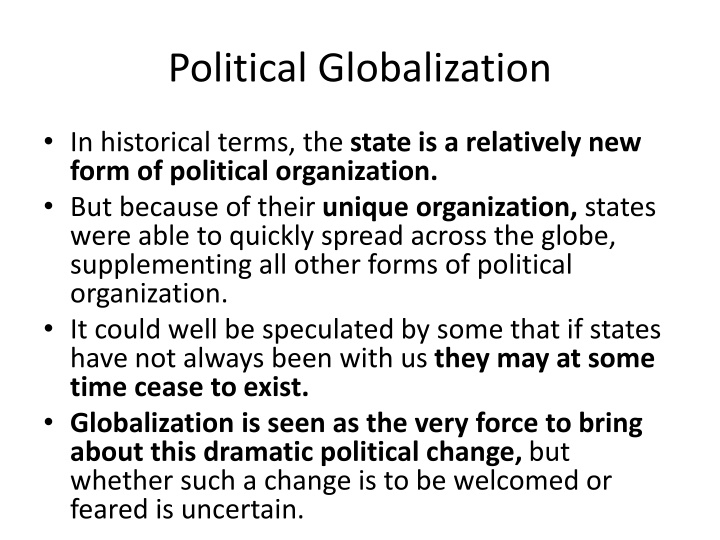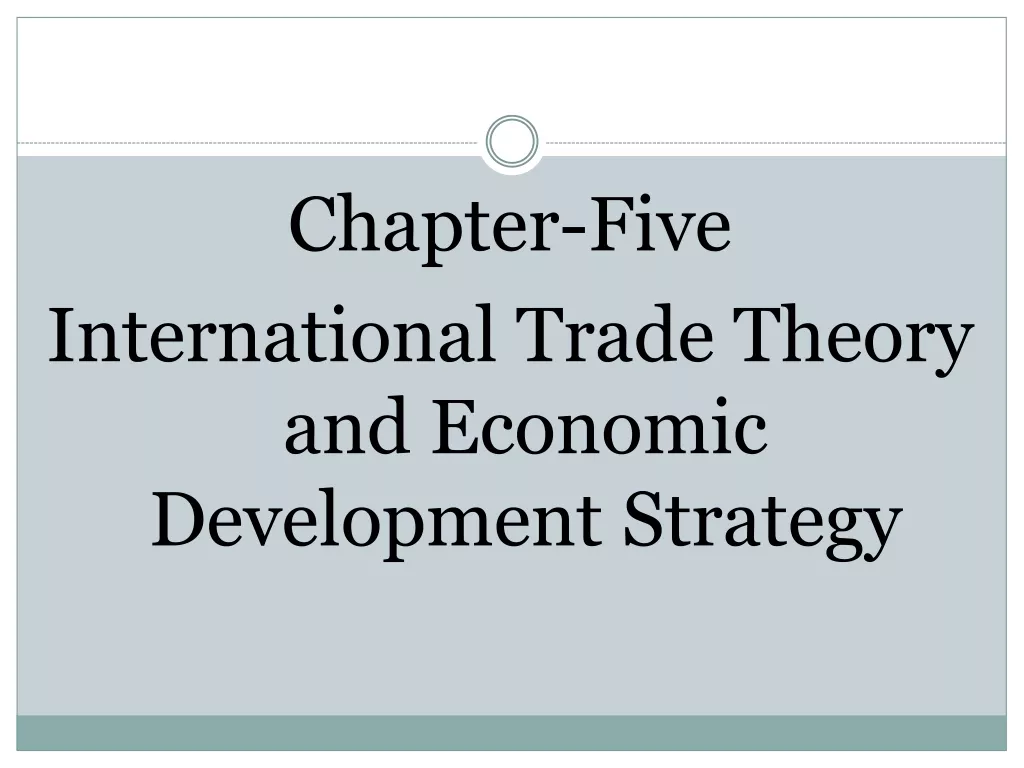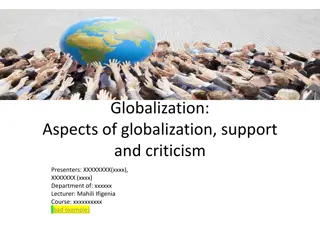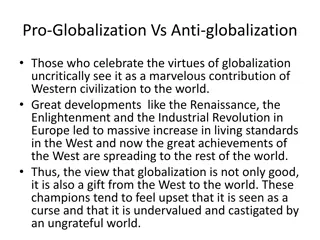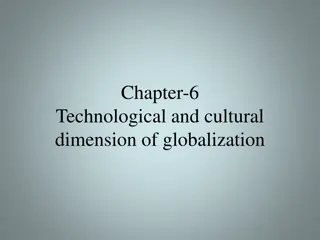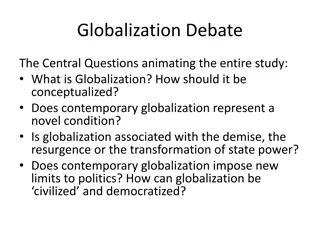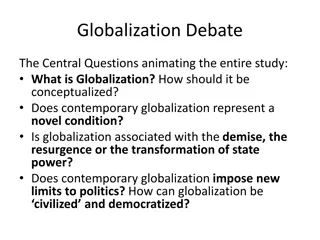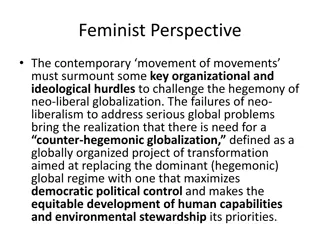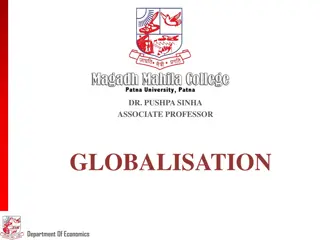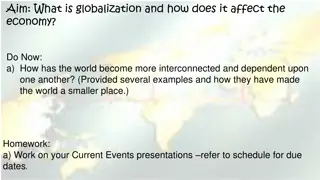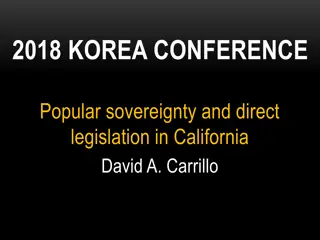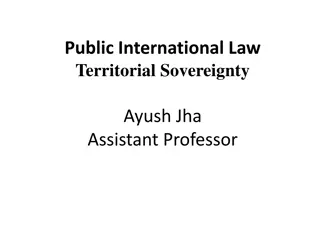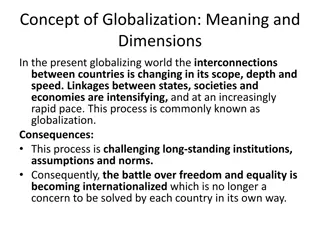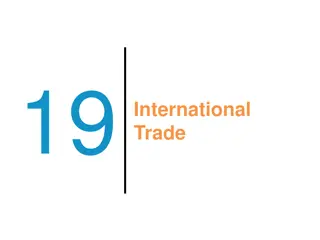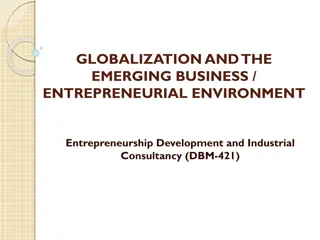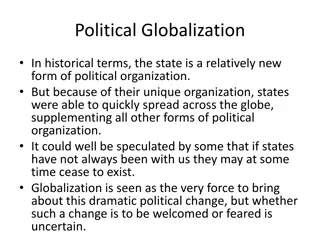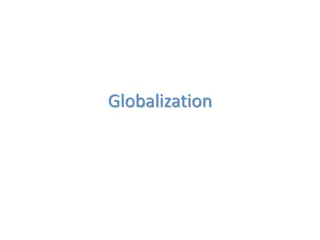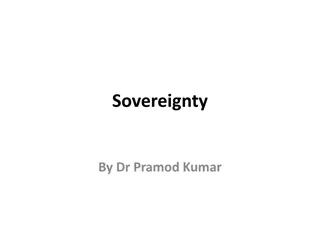The Impact of Globalization on State Sovereignty
Globalization has sparked debates on the decline of state sovereignty as international institutions and interconnectedness challenge traditional state powers. The shift towards a web of organizations raises questions on the future autonomy of states and the effectiveness of violence as a tool. Vital global issues require cooperation beyond conventional warfare, impacting public participation and democracy. Pessimistic views suggest that political globalization may lead to dangerous fragmentation and the rise of violent non-state actors.
Download Presentation

Please find below an Image/Link to download the presentation.
The content on the website is provided AS IS for your information and personal use only. It may not be sold, licensed, or shared on other websites without obtaining consent from the author.If you encounter any issues during the download, it is possible that the publisher has removed the file from their server.
You are allowed to download the files provided on this website for personal or commercial use, subject to the condition that they are used lawfully. All files are the property of their respective owners.
The content on the website is provided AS IS for your information and personal use only. It may not be sold, licensed, or shared on other websites without obtaining consent from the author.
E N D
Presentation Transcript
Political Globalization In historical terms, the state is a relatively new form of political organization. But because of their unique organization, states were able to quickly spread across the globe, supplementing all other forms of political organization. It could well be speculated by some that if states have not always been with us they may at some time cease to exist. Globalization is seen as the very force to bring about this dramatic political change, but whether such a change is to be welcomed or feared is uncertain.
State Sovereignty on a Decline At the core of this debate is the fact that globalization and globalized institutions complicate the ability of states to maintain sovereignty. Internet, for example, has had important implications for states regarding legal authority in many traditional areas: i. Because the Internet does not acknowledge domestic boundaries or rules. Thus, software may be easily copied and shared, in spite of property rights or national security restrictions. ii. In future developments such as electronic currency may further erode the powers of states by undercutting their ability to print money, levy taxes, or regulate financial transactions.
State Sovereignty----(contd.) So far as changes for state autonomy and capacity are concerned one possible scenario is that the state will become bound to numerous international institutions that will take on many of the tasks that states normally conduct. A web of organizations, public and private, domestic and international, would shape politics and polity, set standards, and enforce rules on a wide range of issues where states lack effective authority. The monopoly of violence which is the final preserve of states, may lose its efficacy in a globalized world.
State Sovereignty----(contd.) Vital issues such as environmental degradation, drugs, trade, technological innovation cannot be dealt with through force. Despite the U.S. call for a war on drugs and war on terror , one cannot declare war in the conventional sense. Globalization will also change the nature of public participation and democracy. The increasing interconnection between domestic and international institutions makes it more difficult for sovereign actors to function without oversight from other organizations. Globalization will thus make politics less opaque and more open to scrutiny to domestic and international communities.
Pessimistic Views regarding Political Globalization Political globalization is also seen not as a pathway to peace and participation but as a source of dangerous fragmentation and weakened democracy. Violence will simply change form and not lose its utility. Violent international actors, which are the exact opposite of the modern state in many ways, may be very active. These groups are decentralized and flexible, hold no territory and exercise no sovereignty while drawing financial and other support from across the globe. Unlike other non-state actors such as NGOs or MNCs these groups seek to achieve their objectives through the acquisition and use of force and prove to be very difficult to be countered.
Pessimistic Views----(contd.) The death of a leader (globalized criminal organizations or terrorist groups), although a potential setback, will not destroy the group itself, since it does not depend on a hierarchical structure of command and control. Many question how a more globalized political system can be more democratic. Increased connections may increase transparency but, this does not necessarily lay out a mechanism for individuals to act on that information. Many international organizations may not be democratically formed and may not be directly accountable to anyone at all, e.g. Greenpeace or the World Wildlife Fund are not subject to popular democratic control nor are they necessarily more transparent than states themselves. This raises the concern of a democratic deficit - a new form of global illiberalism.
